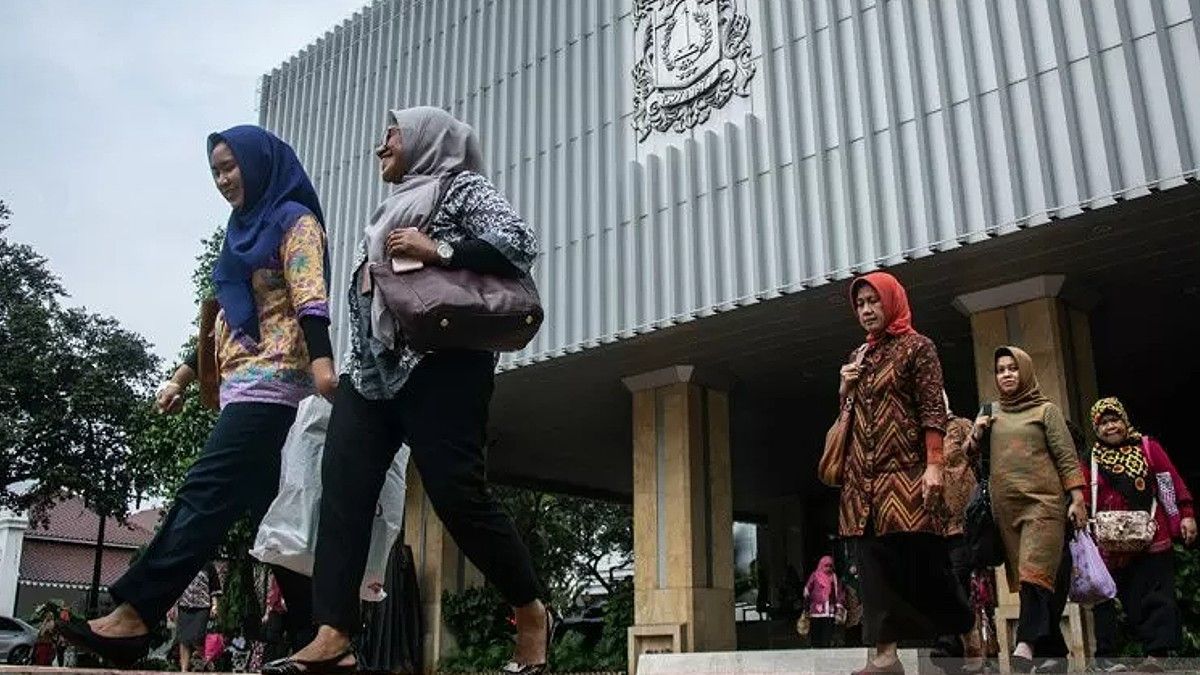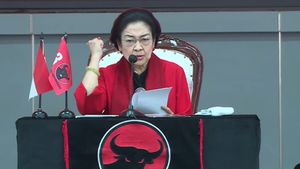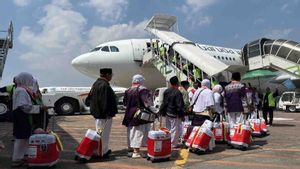Head of the DKI Jakarta Population and Civil Registration Agency (Disdukcapil) Budi Awaluddin said that 12,831 state civil servants (ASN) were also affected by the deactivation of the population identification number (NIK).
This is related to the DKI Provincial Government's plan to deactivate the NIK of Jakarta residents who now live outside the region. To anticipate the deactivation of the NIK, some ASN have already moved population documents according to their domicile, such as KTP and KK.
"ASN who have moved independently as many as 1,170 people as of May 2024," Budi said in his statement, Friday, May 24.
All ASN employees in the work environment of each regional apparatus are asked to ensure that the population documents in the form of their Family Cards and electronic ID cards are in accordance with the current domicile of the residence. This is in line with the Instruction of the Regional Secretary Number e-0005/SE/2024.
If there are ASN employees who have a family card (KK) and an electronic KTP that does not match their domicile residence, and do not report to the Dukcapil Service, it will be proposed a temporary deactivator or temporary suspension.
"In principle, this population administration control program has good benefits, in order to create a global city that is resilient, inclusive, competitive, and sustainable," said Budi.
Currently, there are 11,337,563 residents living in Jakarta and will continue to increase with dynamic population mobility. Therefore, Budi emphasized that population planning data needs to be carried out so that de facto and de jure data in the field can be appropriate and accurate.
"With a DKI Jakarta area of 661.5 square kilometers, there are 17 people in each square meter. If this is not well organized, it can lead to inaccuracies in population data. So we need to continue to make data adjustments in the field," said Budi.
SEE ALSO:
From this condition, Budi views that the socialization of the plan to deactivate the NIK of residents who no longer live in Jakarta by the DKI Provincial Government has been effective.
"It turns out that the effect is that many people have moved because the current socialization is quite massive to the community," said Budi.
In the policy of deactivation of NIK, as many as hundreds of thousands of targets have been deactivated in the category of residents who died and residents in the neighborhood unit (RT) who no longer exist.
Then, the deactivation of the NIK of Jakarta residents who already live outside the area will be carried out after the initial two categories have been deactivated.
However, there are categories of residents who are exempt from the deactivation of the NIK. Among them are the TNI-Polri apparatus and their families who are currently serving outside the city, students or students who are traveling outside the area, residents who are currently receiving treatment, to residents who still have property on behalf of the person concerned in Jakarta.
In the process, the DKI Provincial Government mapped out residents affected by the deactivation of the NIK. Then, the data was submitted to the Ministry of Home Affairs (Kemendagri) to remove the NIK.
Then, in verifying and validating the objections of residents affected by the deactivation of the NIK, the DKI Provincial Government will submit a recommendation to the Ministry of Home Affairs as a follow-up to the elimination of the NIK.
The English, Chinese, Japanese, Arabic, and French versions are automatically generated by the AI. So there may still be inaccuracies in translating, please always see Indonesian as our main language. (system supported by DigitalSiber.id)

















